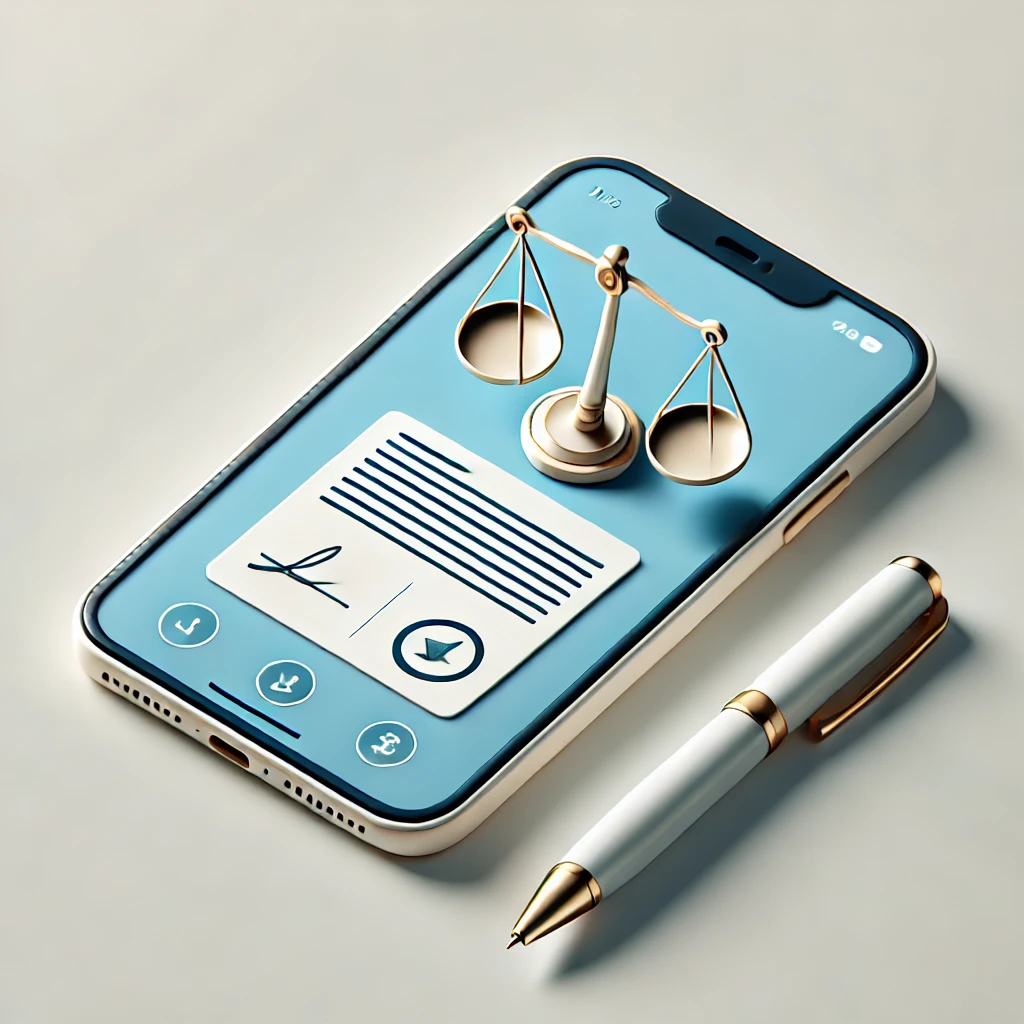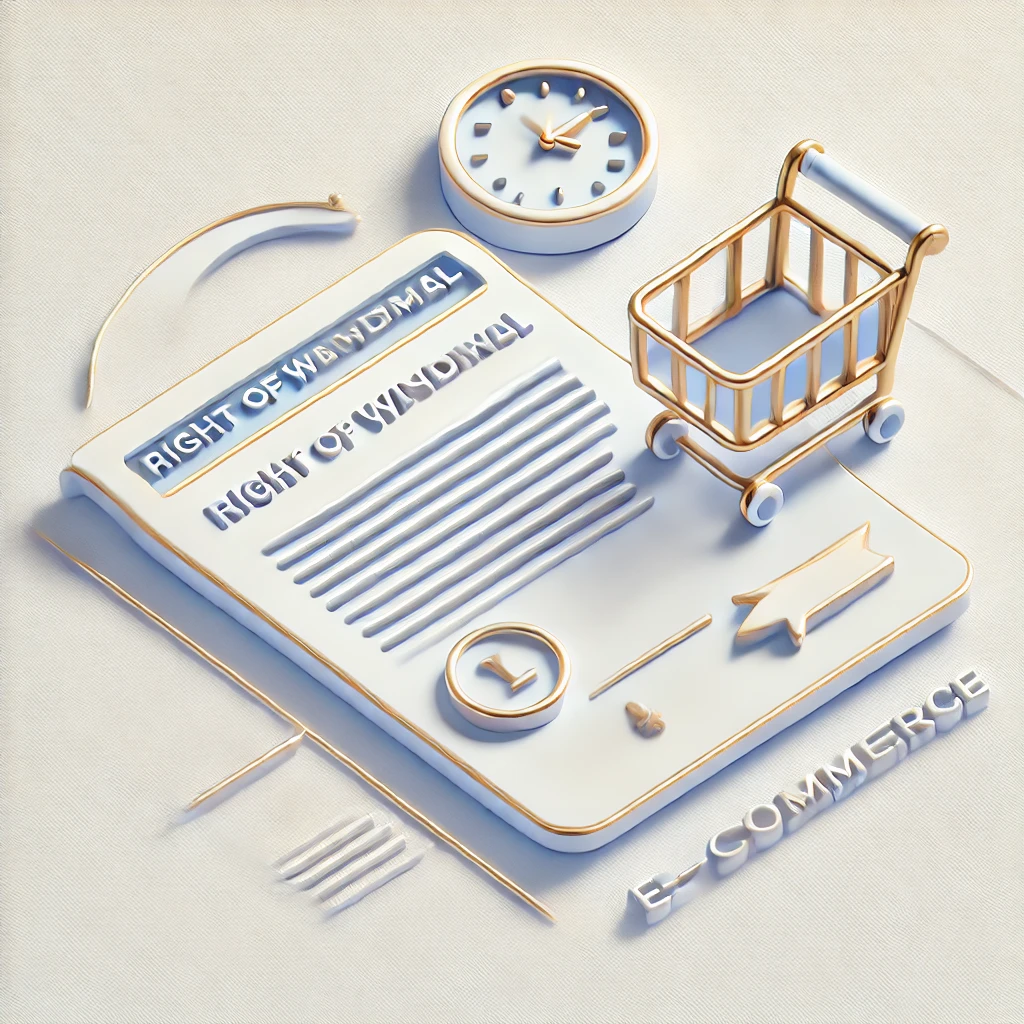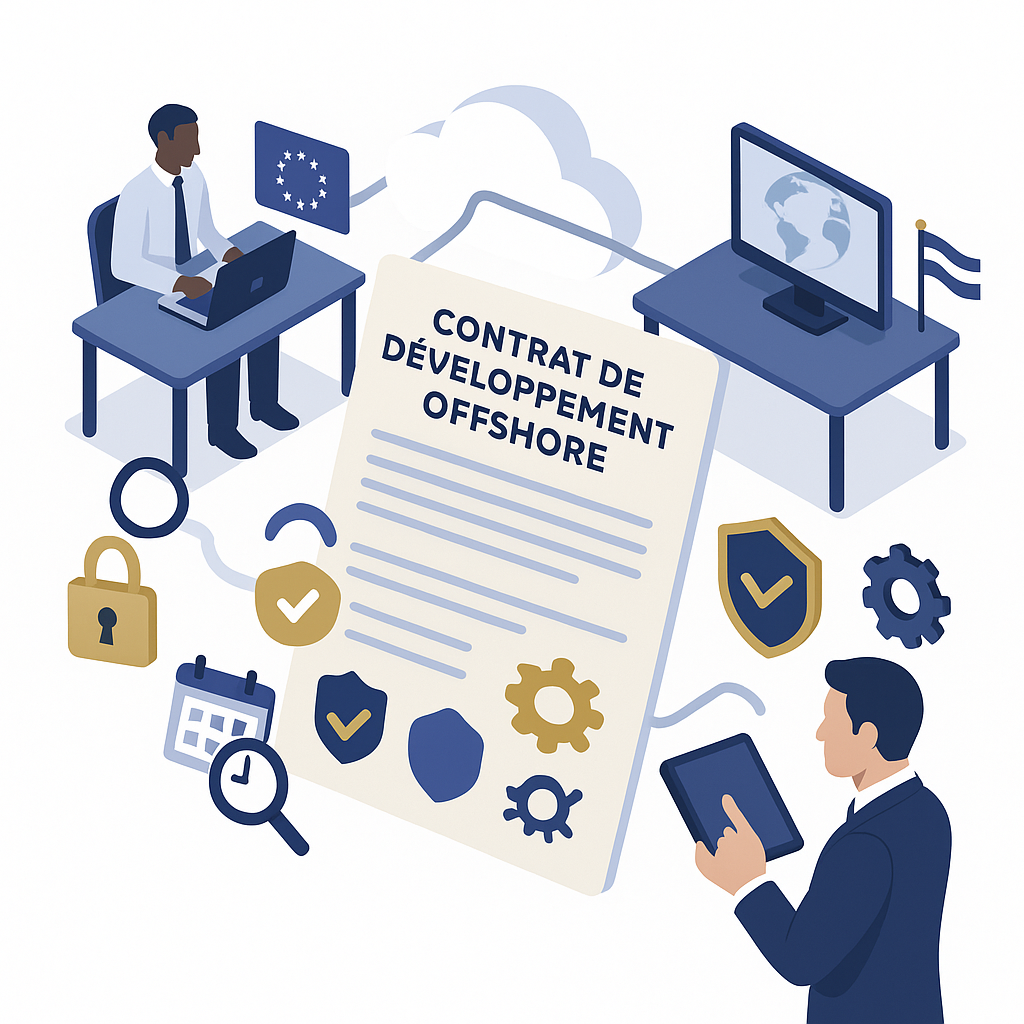Launching a mobile app isn't just about technology or design. It's also about complying with a very specific legal framework that can vary by country, and more broadly within the European Union with regulations such as the RGPD. Failure to comply with these obligations can expose companies to significant risks, including fines or litigation.
- Terms of use
Legal notices are mandatory for all applications accessible to the public, as they are for websites (first "mobile application legal documents"). They enable users to identify the publisher and know who is responsible for the content.
In accordance with the French Law for Confidence in the Digital Economy (LCEN), they must include:
- Publisher's identity (company name, full address of registered office, SIRET number),
- The company name, name and contact details of the host,
- A means of contact (email or telephone number),
- RCS (Registre du Commerce et des Sociétés) registration number (article1 LCEN),
- If applicable, information on intra-Community VAT (article 19), and
- The name of the publication director.
- Penalties for non-compliance :
In France, failure to comply with legal notices can result in a fine of up to €75,000, multiplied by 5 for legal entities, and up to 1 year's imprisonment for the individuals responsible. Failure to comply with obligations can also lead to civil penalties (damages) if a user is harmed by the breach.
- Privacy policy
The privacy policy is crucial in the context of the collection and processing of personal data, particularly with the requirements of the RGPD, especially in its Article 13. It must be clear, concise and easily accessible for users (second "legal documents mobile application").
The items to be included are :
- Types of data collected (personal information, location data, etc.),
- Obtaining user consent,
- The purposes for which this data is collected (application operation, marketing),
- Data retention period,
- The presence of cookies,
- Users' rights, including access, rectification or deletion of their data.
- RGPD requirements and penalties:
Penalties for non-compliance with the RGPD can be particularly severe. For example, the CNIL (Commission Nationale de l'Informatique et des Libertés) can impose fines of up to €20 million or 4% of the company's worldwide annual sales, whichever is higher.
Example : In 2019, Google was fined 50 million euros for a lack of transparency and clarity on data processing.
- General Terms and Conditions of Use (GTCU)
The T&Cs set out the rules for using the application (third "mobile application legal documents"). They protect the publisher by clearly defining what users can and cannot do.
If you have a paying element, general terms and conditions of sale will be required.
The clauses to be included are :
- Access and use: Who can access the application (minimum age, authorized territories) and under what conditions.
- The obligations of the user and the publisher.
- User responsibility: Users are responsible for their actions on the application.
Customer example I recently helped a customer restrict access to his mobile application to physical adults. As children and minors in general benefit from different regulations and protection than adults, it's essential to clearly define the profile of people who can use the application.
- Termination : The publisher may suspend or terminate access in the event of a breach of the GCU, such as inappropriate behavior or fraudulent use of the application.
- Intellectual property: The contents of the application, including source code, logos and images, are protected by copyright.
To find out more and make an appointment with me: https: //www.mirabile-avocat.com/droit-du-numerique/mise-en-conformite-juridique-de-votre-site-internet/
- Intellectual property
Intellectual property is essential to protect the originality of a mobile application. It covers several aspects:
- Copyrights: Source code, graphics, videos and all other application content must be protected by copyright in accordance with article L.112-3 of the French Intellectual Property Code.
- This ensures that no one can copy them without authorization.
- Licenses: If external elements are used in the application, such as open-source code libraries or licensed images, the conditions of use of these licenses must be respected.
- Register a trademark: If the application uses a specific name or logo, we recommend registering it with INPI (Institut National de la Propriété Industrielle) to protect these elements from unauthorized use.
Get help from a specialist lawyer https://www.mirabile-avocat.com/droit-du-numerique/avocat-propriete-intellectuelle/
- Development and maintenance contracts
The development contract is essential when hiring an external developer. It sets out the obligations of both parties, and prevents conflict in the event of disagreement. Here's what it should include:
- Source code ownership: The contract must specify who owns the source code at the end of development. This is crucial for the publisher, who must retain the possibility of modifying the application in the future.
- Operating rights: It's important to define who holds the rights to market and distribute the application.
- Maintenance and support: Is the developer also responsible for post-launch maintenance? If so, the contract should include specific clauses for updates and patches.
Common disputes Many companies can find themselves stuck after the development of an application, because the developer refused to hand over the source code, or demanded additional fees for modifications, and these were aspects not initially envisaged in the contract.
- It is therefore essential to foresee this type of situation in the contract.
- Third-party contracts (APIs, service providers)
When a mobile application relies on APIs or other external services (for example, for payments or geolocation), it's imperative to formalize these relationships via contracts:
- Service Level Agreements (SLAs ): It's crucial to define the expected levels of service, particularly in terms of availability and performance. For example, a payment API needs to be available 99.9% of the time to guarantee the smooth operation of the application.
- Application publishers must provide fallback solutions in the event of third-party service failure, to guarantee continuity of service for users.
- Liability: In the event of failure of a third-party service, who is liable? This point must be clearly defined in the contract to avoid any legal uncertainty.




